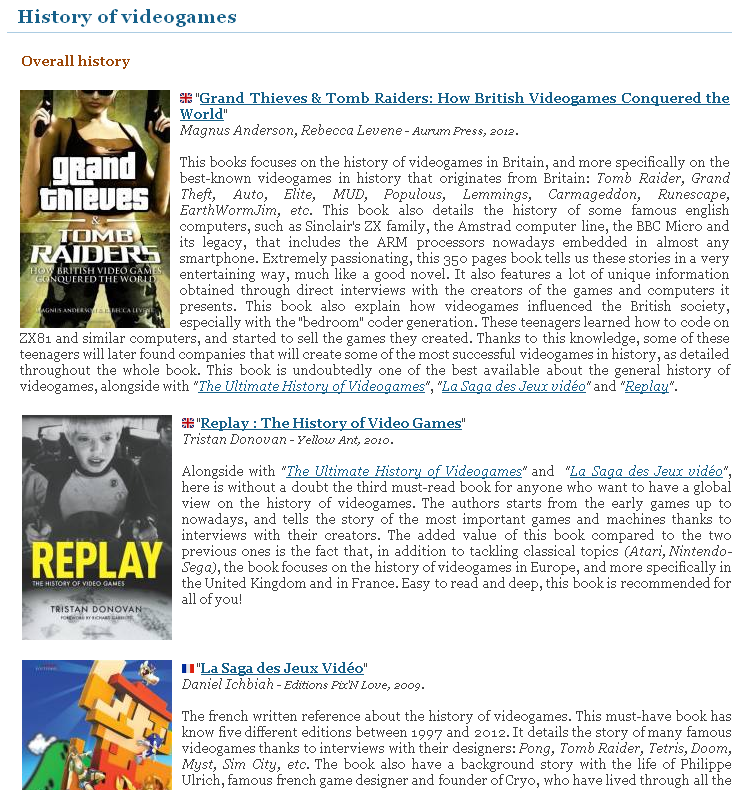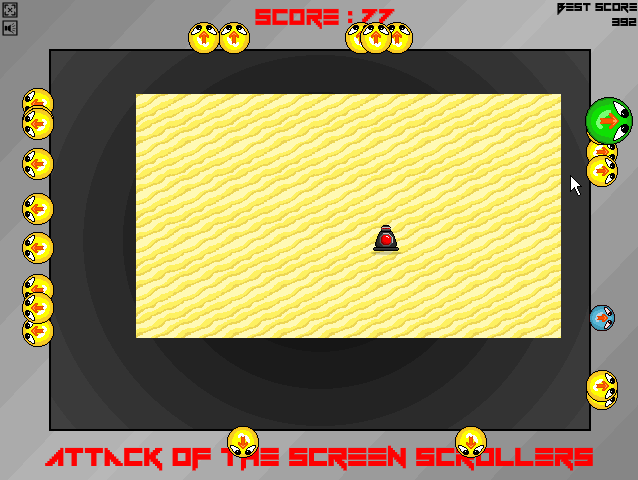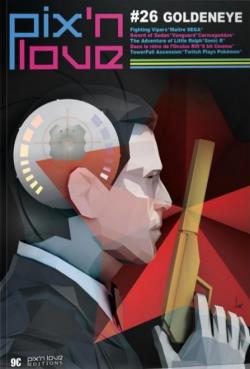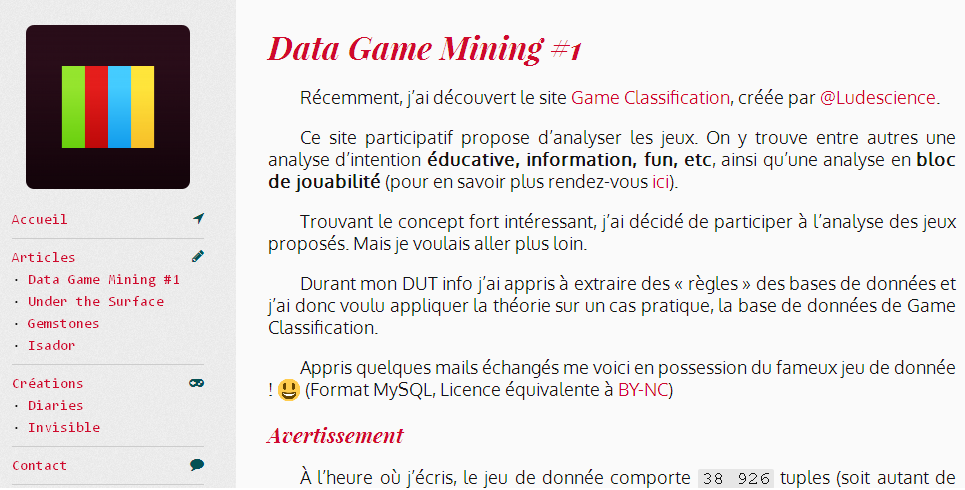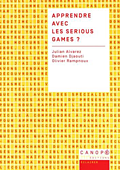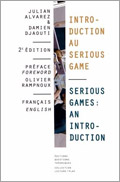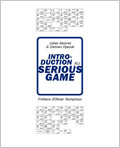LudoScience
Our list of 150 video game related books Damien Djaouti | 03-16-2015 | 13:11
If you like books and are into video games, then this resource may interest you. Ludoscience is building a big list of books about video games. It currently features more than 150 books dealing with various topics: history of video games, game creators biographies, Game Design, Serious Games, video games studies & analysis...
Each book is presented through a personal abstract, as we have read each book before adding it to the list :). It gathers books in English or French language, and our abstracts are also available in both languages. We will regularly update the list, as our long-term goal is to provide you with the most complete list of books about videogames possible. If you want to suggest us a book, please feel free to contact us.
A little background about this project
Ludoscience is a French registered association dedicated to the study of video games. It gathers three academics with a love for video games. As we teach history of video games and game design courses in various French universities, our website gathers a lot for ressources for students: lessons materials (only in French for now), students game projects, and this bibliography. We have been building up this list of books for about 2 years. It started with the simple desire to share the video game related books we found interesting. And, as we are quite avid readers, it kept on growing to reach the 150 books mark a few days ago. One "unique feature" of this list for the English-speaking readers is that we also feature books released in French language only - and there is quite a lot of literature about history of video games that is unfortunately released in France only (such as this excellent biography of Shigeru Miyamoto, a worldwide history of 70's home consoles, or this brilliant essay titled "Philosophy of video games", to name a few). We have written a small summary in English for these French-only books, in the hope that some of them will be translated into English someday.
We hope you will find interesting books in this list!
Leave a comment | Category : News, | Keywords : bibliography, videogame, books,
Attack of the Screen Scrollers reviewed by Youtubers Dr. Ludos | 01-13-2015 | 19:53
Behind the challenge of creating an original game from scratch in 48h, one of the main features of the Ludum Dare competition is the user community: people participating in this competition are able to give a very good feedback on the thousands of games created during the event.
But sometimes, the feedback comes from people not participating in the competition, as it happened with Attack of the Screen Scrollers: it was reviewed by a Youtuber called KokoStern in his "Concept Hunter " show, dedicated to "games with an original concept":
The game was also featured by two other Youtubers, first TechValleyGameSpace:
then Ythmeve:
If being featured in a Youtube video happens to many games everyday, for me it was the first time that one of my games got such an honor, and I can't tell you how happy I feel about it! I think it's one of the best feedback a game designer can have. So thanks a lot to these three Youtubers and to all the Ludum Dare community for the incredible feedback during this event - and count me in for the next edition! :)
Leave a comment | Category : News, Game Design, | Keywords : attack of the screen scrollers, youtube,
Attack of the Screen Scrollers - a new game is released! Dr. Ludos | 12-15-2014 | 20:41
Again, I participated in the Ludum Dare 31 competition, where you have to create a game all by yourself in 48h on a given theme. This time, it was "Entire Game on One Screen."
The game is called "Attack of the Screen Scrollers". It's a top-down shooter, where you'll have to protect the background image of your single game screen against the deadliest enemy of pixels: scrolling! "Screen Scrollers" will invade the screen border, and force the image to scroll toward them. You'll have to shoot them all down before your image gets completely scrolled away!
Use the arrow keys (or WASD) to move, and click on the "Screen Scrollers" to shoot them with your laser. You'll earn points for each kill, so aim for the high score!
The game, created with Flash, can be freely played on our website. And if you are looking for a challenge, my personal record in 1292 points !
Enjoy!
Leave a comment | Category : Games, | Keywords : ludum dare 31, entire game on one screen, experimental game,
The history of Carmageddon Damien Djaouti | 09-04-2014 | 13:50
Carmageddon. A video game known by people even if they never played it, thanks to its scandalous reputation. However, this game is far from solely being the "nasty racing game where you have to crush pedestrians" that many media and politicians wanted to ban. Carmageddon is first and foremost an excellent game, featuring many technological and gameplay innovations that deeply influenced the racing game genre.
We interviewed Neil Barnden, co-founder of Stainless Software game studio, who told us in great details the birth of this unique video game. Influenced by their passion for "Banger Racing", the studio designed a game where the main goal isn't to finish the race, but to crush the opponent cars. An attempt from their editor to get the rights from the movie "Death Race 2000" lead the studio to add pedestrians that can be run over into the game, and they will stay even after the movie adaption cancellation. The young studio then pursues the creation of the game following a philosophy of "if it sounds like fun, let's try and do it." Therefore, they will, among others ideas, ask one of their friends to film him while being hit by a car to "get some reference material", hire a genius programmer who don't have a driver license to program vehicle physics, or get "inspired" by some famous celebrities to create the wild game characters. We have even found the first game created by the studio, BRoom, a 3D shoot'em up inspired by Descent (1994), that shows how much Stainless Software is passionate about cars.
All these stories, and much more (how did Carmageddon manage to fight censorship after release?), can be found in an 18-pages long article published inside the 26th issue of Pix'n Love magazine, a French magazine dedicated to the history of videogames.
Leave a comment | Category : History of videogames, | Keywords : history, carmageddon, stainless software, violence, scandal, censorship, fun,
A Data Mining attempt over GameClassification Damien Djaouti | 07-01-2014 | 10:51
"Data mining" is the science dedicated to the creation of knowledge through the analysis of large quantities of data, such as establishing customers habits by tracking how they use their loyalty cards. A few time ago, we were contacted by a computer science student, Axel RB, who desired to perform such analysis over video games, using the data about 38.000 video games collected on our website GameClassification. Thus, we gave him a dataset, and he just published his first findings on his website (in french):
For now, his main finding is the fact that browser-based games tend to be analyzed way more often than the other kind of games on our website, with a striking example coming from the Cooking Mama series. We are now eager to read about his other findings using this method! :)
Leave a comment | Category : News, | Keywords : data mining, game classification, research, computer science, video games,
About
This website gathers ours thoughts, our projects, our publications and many pedagogical resources related to the various types of videogames:
Blog categories
Our books
Follow us
Our last tweets
Videogaming links
-
http://bnf.libguides.com/jeux-serieux
- AFJV News
- (BNF) French National Library Serious Games
- Genious Serious Games
- Succubus Serious Games
- SGBelgique Serious Games
- AcCréteil Serious Games
- 1984 Advergames
- Ex-Vid Studies
- Playtime Studies
- Pix'N Love Books
- Console Syndrome Studies & Books
- Olivier Mauco Studies
- Alexis Blanchet Studies
- TIGSource Indies News
- IndieGames Indies News
 Français
Français English
English